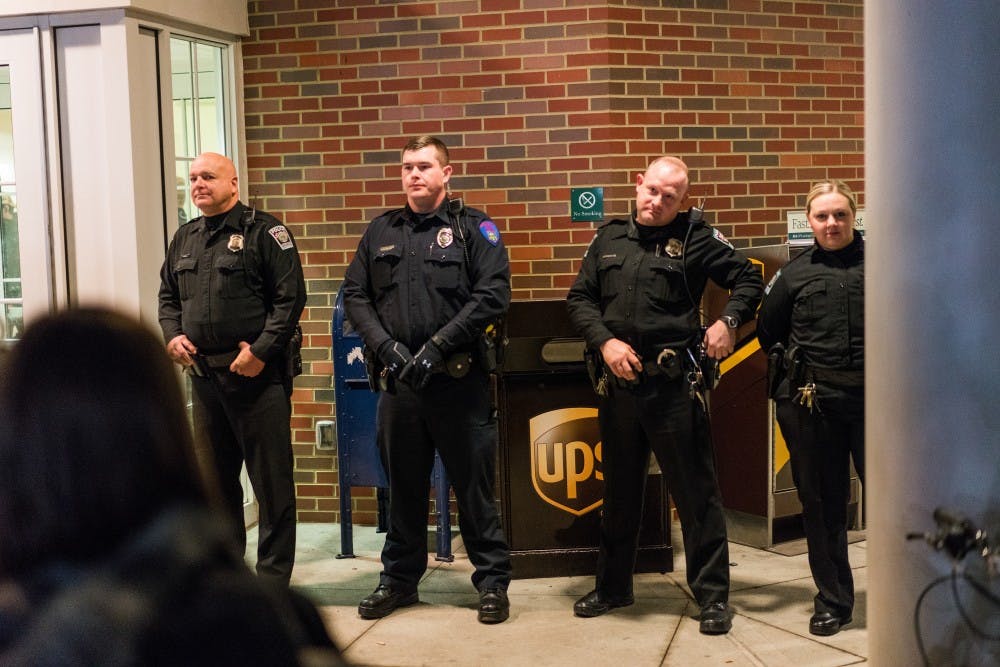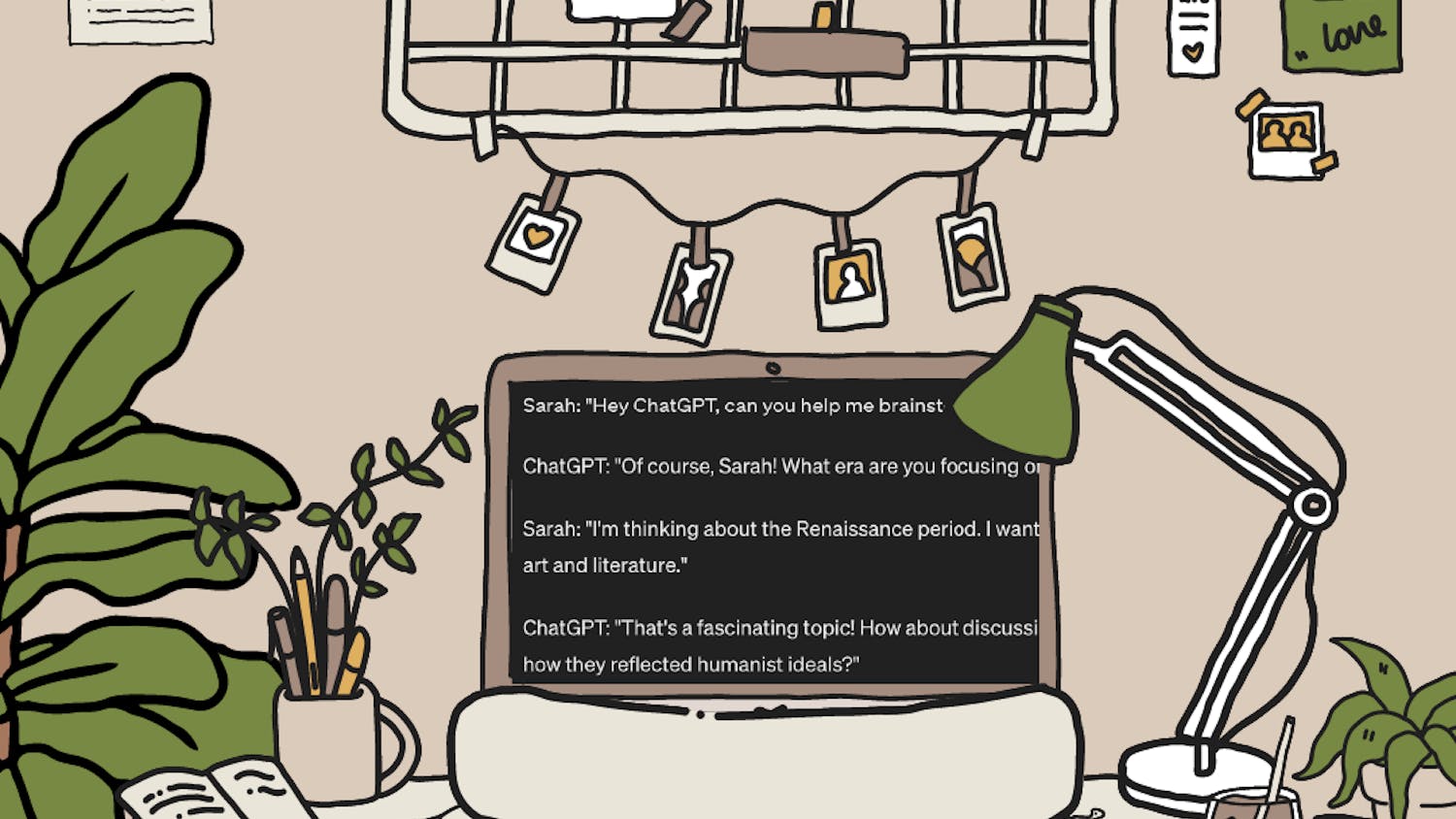Email records between the Ohio University Police Department and university officials provide insight to the university's response to the arrest of the "Bobcat 70."
The first installment of emails The Post received in response to a public records request for emails between OUPD Chief Andrew Powers and several university officials show the administration working together to draft public statements during the controversy that followed Powers' decision to arrest 70 people. Most of those arrested are OU students, who demanded OU become a sanctuary campus Feb. 1.
The 70 students were charged with criminal trespassing after refusing to leave the fourth floor Baker Center lobby after Powers told them to by megaphone several times. Some of the 70 have accepted plea deals and some are awaiting trial.
Powers reviewed and proposed changes to public statements from other officials. Amber Epling, the director of presidential communications, sent a copy of President Roderick McDavis’s talking points for a Feb. 7 faculty senate meeting to Powers for his review. Epling edited the talking points to reflect information Powers provided, and the two also discussed the tone and wording.
“Would ‘unsafe’ be better than dangerous?” Powers said to Epling in an email. “That aligns with the language I used on that night and sounds a little less inflammatory.”
Powers solicited feedback from multiple university officials as he drafted a campus-wide email in response to the events of Feb. 1. The officials spent several days editing the email statement. Powers’ first draft, which he emailed out to other administrators Feb. 5, was at least twice as long as the one sent out to the entire campus Feb. 9. Other officials told him it was too long and sounded defensive, though they generally thought the email was a good idea.
Powers’ Feb. 9 email did not indicate that the university could not drop the charges against the 70 students arrested. In an email to John Biancamano on Feb. 3, Powers said the university can’t drop charges because it isn’t a victim or complainant in the case, but he added that making that point would only shift attention to the prosecutor.
“I suggest we focus on the fact that dropping charges undermines the judicial process and could be viewed as discriminatory since no charges have been dropped on previous civil disobedience requests,” Powers said.
Other emails show Powers scheduled several meetings with other university officials and concerned student groups, including two meetings with representatives from Student Senate and a meeting with the vice provost of diversity and other university directors.
One email reinforces the university’s assertion that Powers himself ordered the arrests, and that the administration did not tell him to do so. In a Feb. 6 email to Vice President of Student Affairs Jason Pina, Powers said he had no obligation to contact the administration on Feb. 1.
“If we become aware of a situation that requires police intervention, we don’t have to call and get permission in order to act,” he said in the email. “We have the authority and obligation to do so on our own. … How we became aware of the situation or who called us is irrelevant; the discussion should actually focus on whether the conduct at Baker was legal — both the protest and the response.”
The emails also showed support of Powers’ decision from other officials.
“Thank you Andrew, and your officers, (for) the hard work you do and your thoughtful approach to the hard calls you must make,” OU Chief of Staff Laura Myers said in an email to Powers.
While Pina did not explicitly express support of OUPD’s actions Feb. 1, he said in a Feb. 5 email that the protestor’s demands “were not answerable that evening.”
“Your points are excellent because stopping something before it blows up is much better,” Pina said, referring to the email draft Powers had sent him.
None of the emails from university administrators expressed dissent at Power’s decision to order the arrests.






